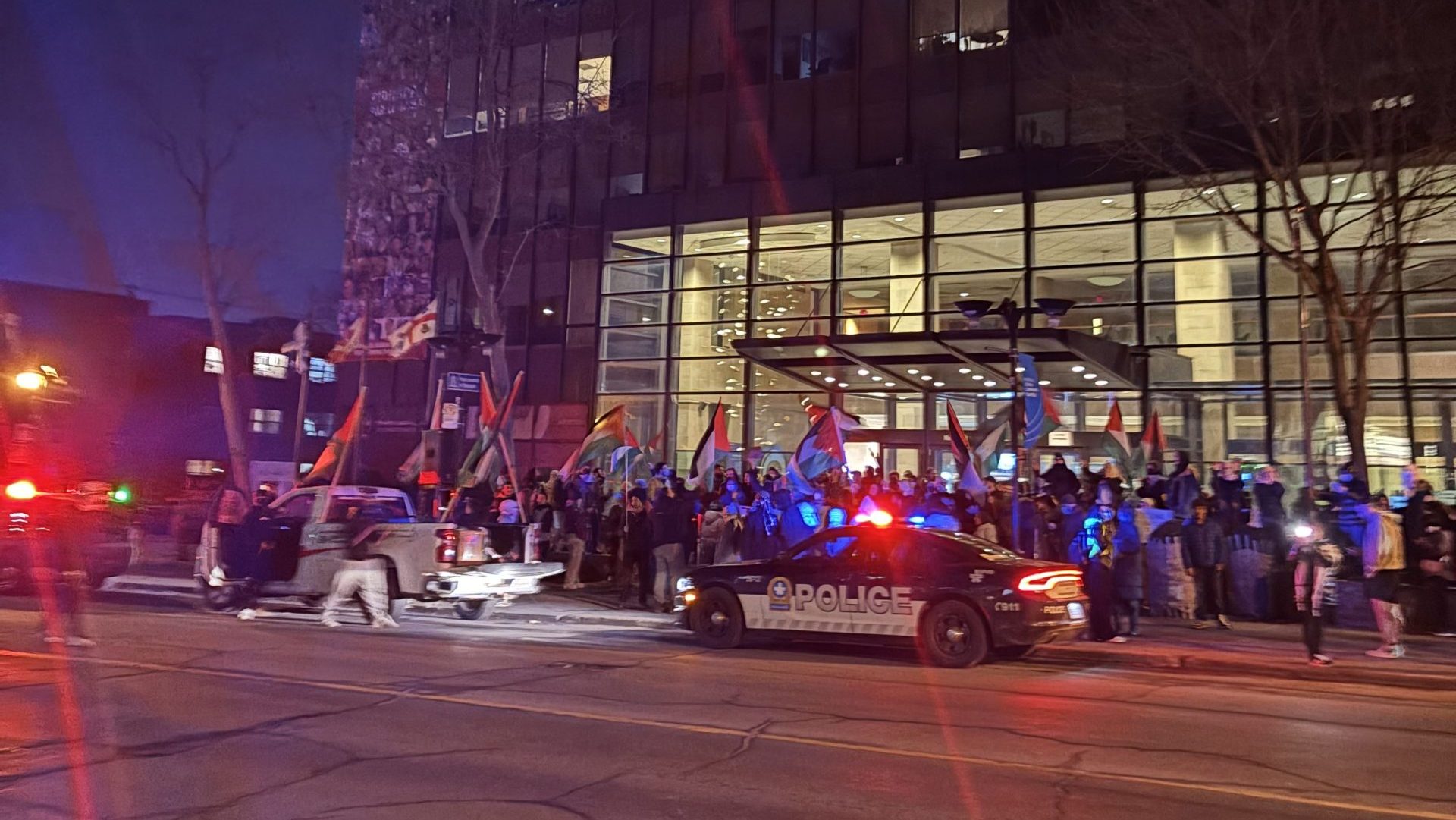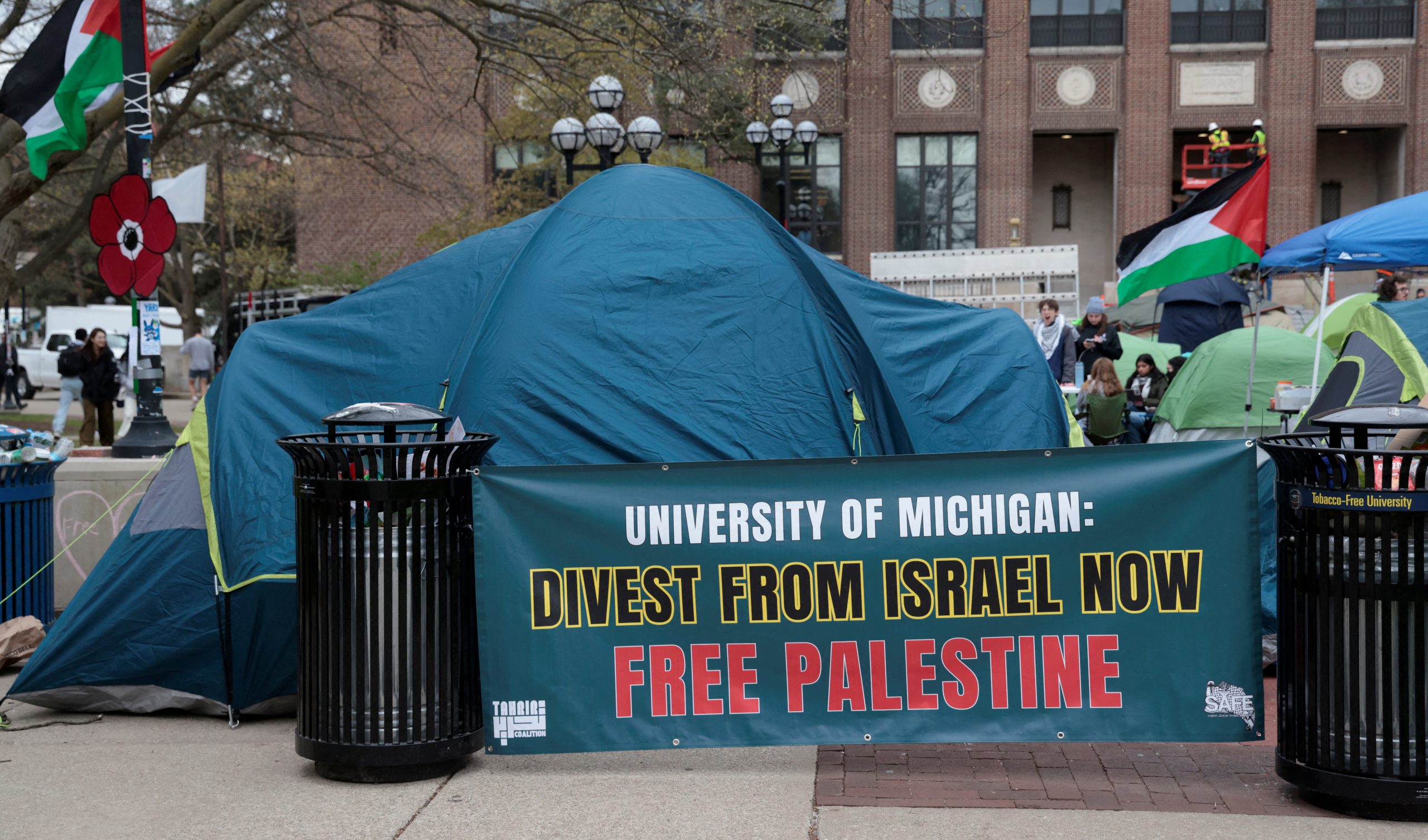At the University of Virginia (UVA), tensions peaked as at least 25 pro-Palestinian protesters were arrested and an encampment was cleared by police. The university stated that the protests, which had been largely peaceful until Saturday, escalated when police officers in riot gear intervened to dismantle the encampment. Videos circulating online showed officers using zip-ties and chemical spray during the operation.

Protests Across U.S. Campuses
Similar scenes unfolded across various U.S. campuses as students rallied against the ongoing conflict in Gaza and urged President Joe Biden to take action. Demonstrations called for divestment from companies supporting Israel’s government and highlighted the humanitarian crisis in Gaza. In Ann Arbor, University of Michigan graduates staged a peaceful disruption during a commencement ceremony, waving Palestinian flags before being escorted away by campus police.
Outrage at University of Mississippi
The University of Mississippi witnessed a disturbing incident during a pro-Palestinian protest, where counter-protesters, predominantly white students, taunted a Black female protester with racist remarks and gestures. The incident, captured on video, sparked widespread condemnation and calls for accountability. While the university’s chancellor denounced the “racist overtones” and launched an investigation, the incident underscored the deep political divisions and racial tensions on campus.
Political Activism in Today’s Youth
The surge in pro-Palestinian protests on college campuses reflects a broader trend of political activism among young people, particularly in response to international conflicts and social justice issues. As students voice their solidarity with Palestinians and demand accountability from their institutions and government, these protests serve as a platform for raising awareness and advocating for change. However, they also underscore the complexities and sensitivities surrounding discussions of the Israeli-Palestinian conflict, often leading to heated debates and ideological divisions within academic communities.

Amid these demonstrations, controversies like the one at the University of Mississippi highlight the intersection of racial tensions and political discourse on campus. The incident, characterized by racist taunts directed at a Black protester, underscores the need for universities to address issues of diversity, equity, and inclusion, as well as to foster constructive dialogue and respectful engagement among students with differing viewpoints.
